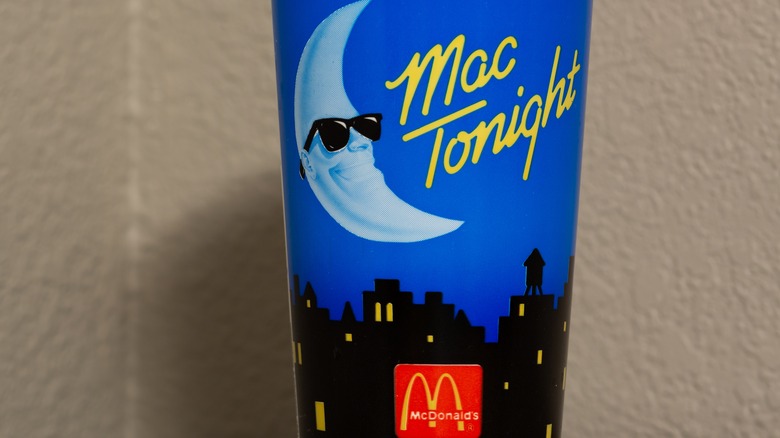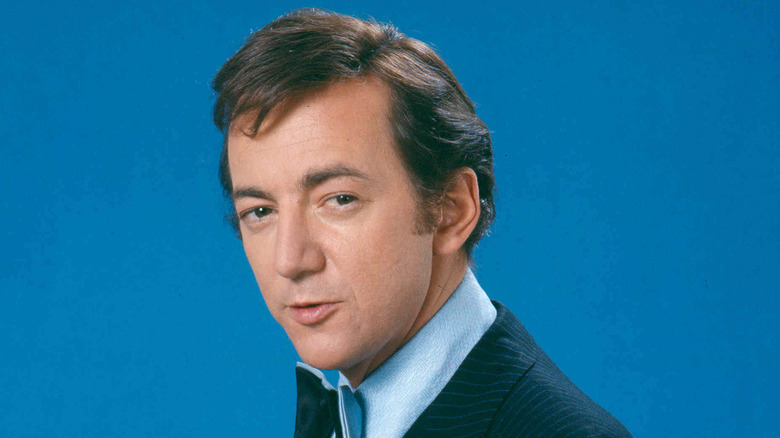The Unusual Fast Food Mascot Used To Target Late Night Diners
Take an oversized moon-headed crooner, throw in a few props, like sunglasses and a black suit and tie, taken from a fictional 1980s cyberpunk TV presenter, and add a song adapted from a 1920s German play about a murderer named Macheath, and — apparently — you have a hit fast food mascot. That's exactly what happened in 1987 when McDonald's introduced Mac Tonight to American television audiences (after a brief trial run with California viewers). The corporation was doing well with children, as evidenced by McDonald's being the biggest toy distributor in the world via its Happy Meals. But it wanted more adults to eat their dinners there. A Los Angeles-based ad firm created the character that would go on to star in 27 commercials.
Besides having a giant moon-shaped head, the signature look of Mac was an attempt to tap into the wildly popular 1980s character Max Headroom, who sported sunglasses and a black suit and tie. The pop culture phenom portrayed by actor Matt Frewer, had a hit U.S. television show, shilled for Coca-Cola, and was interviewed by David Letterman. McDonald's then got the rights to the famous song "Mack the Knife" and changed the lyrics, so they were no longer about a bloodthirsty serial killer but rather about going out to dinner at the company's establishments. With lines like, "It's a good time for that great taste, dinner at McDonald's. It's Mac Tonight" set to the catchy tune, the commercials quickly took off. And who was hiding under the lunar-shaped headgear in these live action commercials? None other than Doug Jones, the tall actor behind iconic filmdom creatures ("The Shape of Water" Amphibian Man) and monsters (Count Orlok in 2023's "Nosferatu").
The lawsuit that sank Mac Tonight
McDonald's ran into trouble not for stealing Max Headroom's signature style for Mac Tonight, but for the way in which the character sang the new version of "Mack the Knife." The song was written in the 1920s by composer Kurt Weill and playwright Bertolt Brecht for their avant garde production, "The Three Penny Opera." A few decades later, jazz great Louis Armstrong released an English language version of the song. A slew of other artists followed suit, including singer Bobby Darin, who had a huge hit with his swinging version in 1959.
Darin died more than a decade before Mac Tonight hit TV screens, but the artist's son, Dodd Darin, sued McDonald's for $10 million in 1989 alleging the corporation had used "a male singer who imitated Darin's singing voice and singing style" in its ads, per the lawsuit. The suit was eventually settled and Mac Tonight disappeared to become just one of the many forgotten fast-food mascots, like Domino's Noid and Arby's Oven Mitt. Mac has made a few cameo appearances in McDonald's commercials over the years. And, like the animatronic Chuck E. Cheese band, the robotic Mac Tonights that once graced McDonald's across the land were removed, leaving a single (inoperative) Mac Tonight at a McDonald's in Orlando, Florida.

